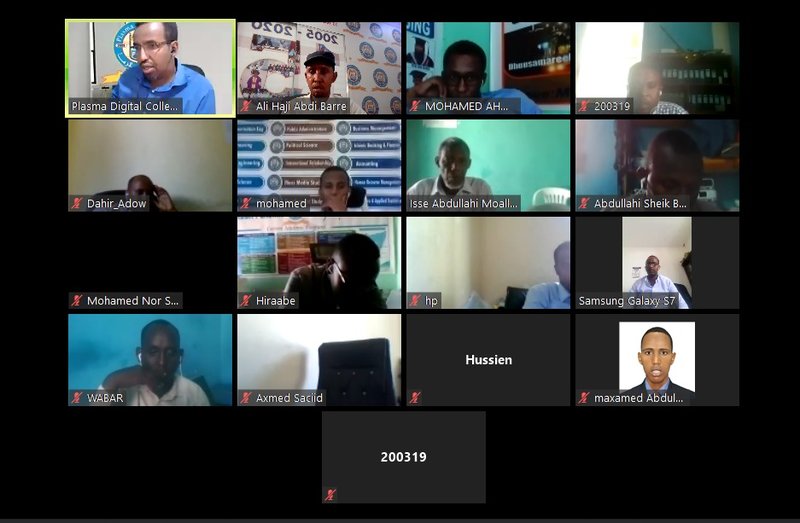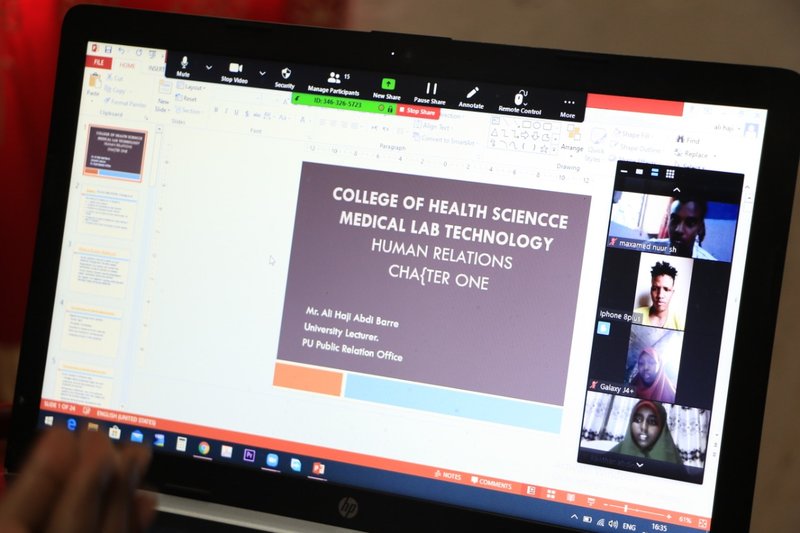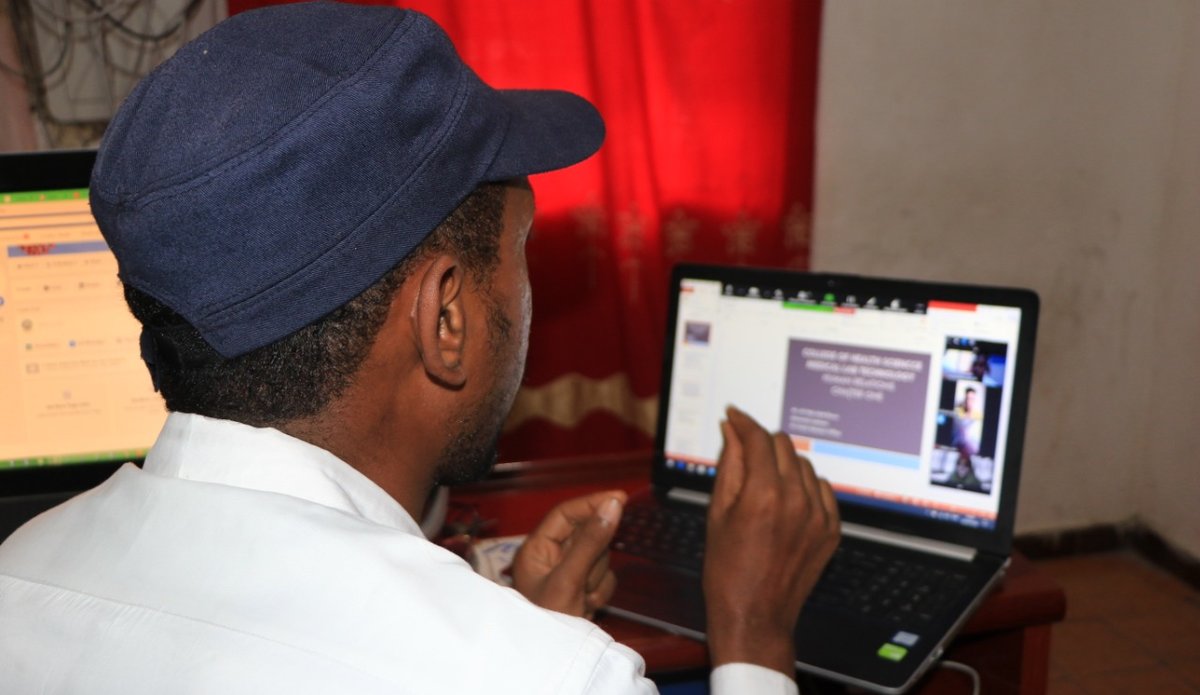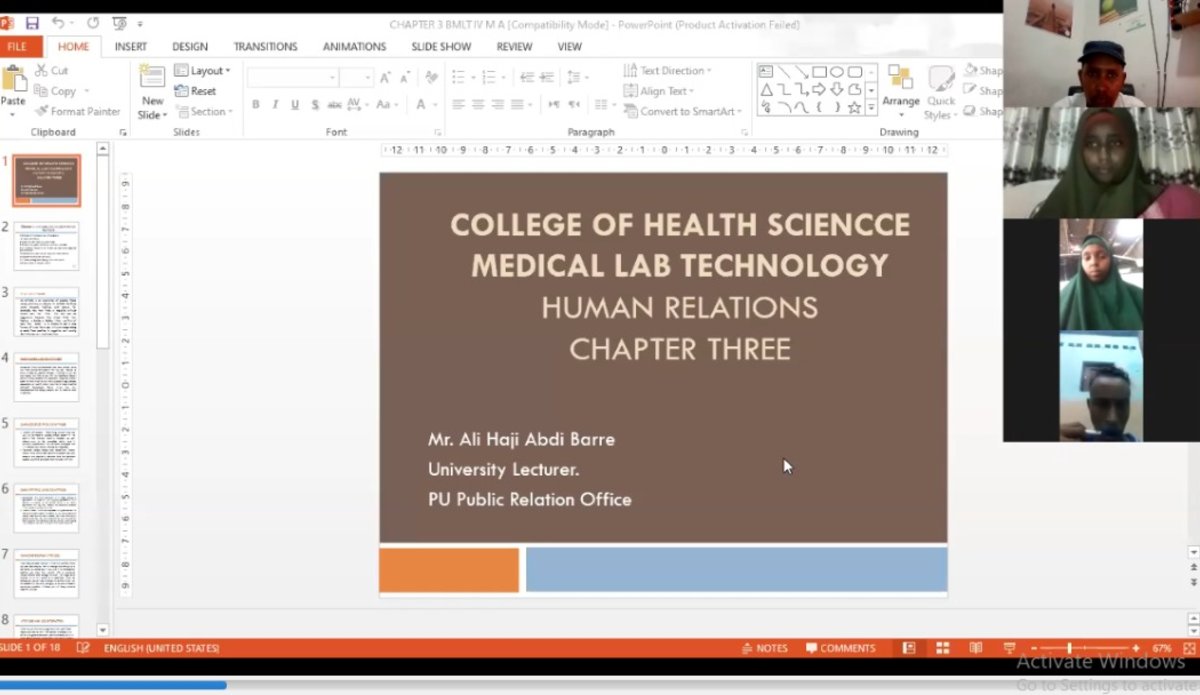Somalia's COVID-19 response: A shift to online learning in Somali higher education
Mogadishu – Nowadays, the much-admired gardens and once-full classrooms at the campus of Plasma University in Mogadishu are empty.
Like the rest of Somalia’s higher education institutions, the university – with more than four thousand students and one hundred and seventy (170) people on the teaching faculties – are now off-limits in the wake of government directives on the response to the coronavirus (COVID-19) pandemic.
“We are following the federal government directives of social distancing and closing of educational institutions to save lives. Otherwise, the coronavirus menace will have a devastating effect on society because of us [universities],” says Plasma University’s public relations manager, Ali Haji Barre.
But the university is keen to inform that while its corridors are empty, its internet bandwidth is quite the opposite. As with some other universities around the country and the world, Plasma University has shifted its classes to online learning – it was one of the first to do so in Somalia.

The shift is a major change from a dozen years ago when such connectivity was impossible and conflict between militias made attending class a potentially lethal experience.
“The good news is that students will continue their studies through the university’s virtual platforms,” Mr. Barre adds. “Since 2018, Plasma University has been gradually shifting to virtual learning – that’s why the students were able to continue their classes just two days after the restrictions were imposed.”
The university official also noted that educational apps were loaded on to the laptops of both students and lecturers, and the latter were also provided with training on virtual teaching.
“Initially, it was not easy for older lecturers, and some students, to manage their lessons due to technical problems, and there were difficulties and extra costs involved in coaching veteran lecturers who were only familiar with face-to-face teaching method,” Mr. Barre says, adding that the hurdles have been overcome.
Some other Somali institutions, such as Mogadishu University and SIMAD University, have also started offering online classes, with the change in approach and format to the virtual classrooms drawing much comment on social media, as well as students’ desire to keep learning through the pandemic.
“My name is Mahir Hassan Mohamed,” said a student whose video became viral on social media. “A student at Mogadishu University’s Faculty of Economics. The leadership of our university has enabled us to continue our studies online. Kindly stay home and study.”
Another student’s social media comments went viral: “My name is Rahmo Araye Omar, a student of SIMAD University. Since April 2020, we have been taking all of our lessons through online methods. At the moment, I believe learning in a classroom can threaten our lives due to COVID-19, according to our health ministry. I encourage other students to study at home.”

"We are much better than many countries who have been stable for the last thirty years. We have immediately adopted online learning. Somalis need only simple public relations to believe in their strength,” commented another student on Facebook.
Even teachers were joining in
“A few days ago, I was giving a lecture via Zoom to a group of medical students in Mogadishu. Judging from their eagerness to learn and their thirst for knowledge coupled with their sharp, circumspect minds, the future of Somalia is bright,” tweeted a medical doctor.
“After weeks of a COVID-19 break, I have resumed my Mogadishu university class using Zoom,” tweeted another.
Staying away
As of late March, more than 850 million children and youth – roughly half of the world’s student population – had to stay away from schools and universities due to the COVID-19 pandemic, according to the United Nations Educational, Scientific and Cultural Organization (UNESCO).
The UN agency adds that the scale and speed of the school and university closures represents an unprecedented challenge for the education sector, with distance learning solutions one of the methods being used to fill the void.
As an immediate response to massive school closures, UNESCO has established a COVID-19 task force to provide advice and technical assistance to governments working to provide education to students out of school. It is also holding regular virtual meetings with education ministers from all over the world to share experiences and assess priority needs.
 UN
UN








